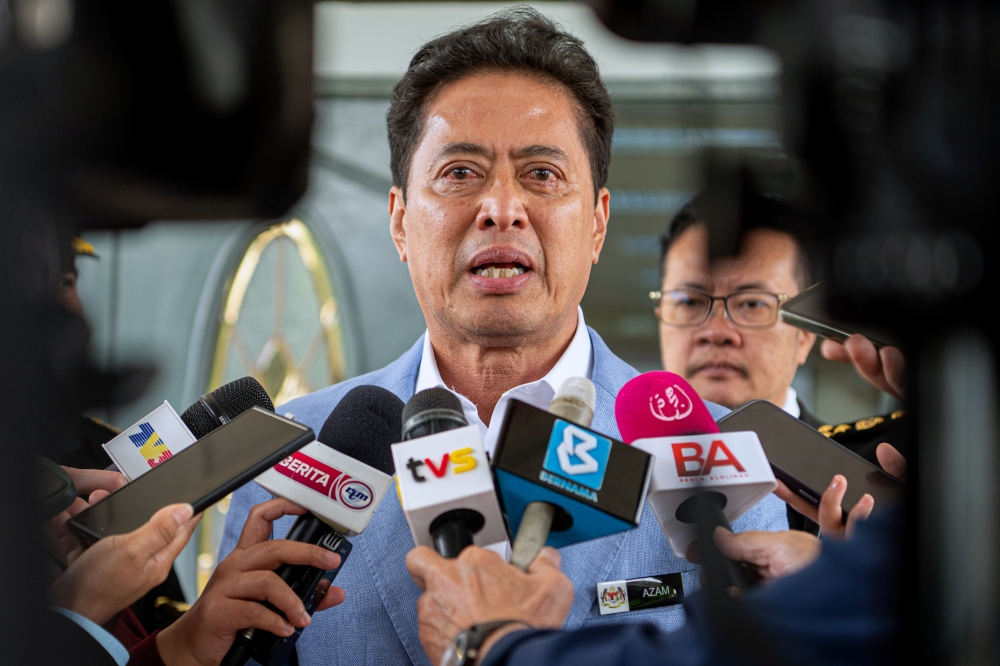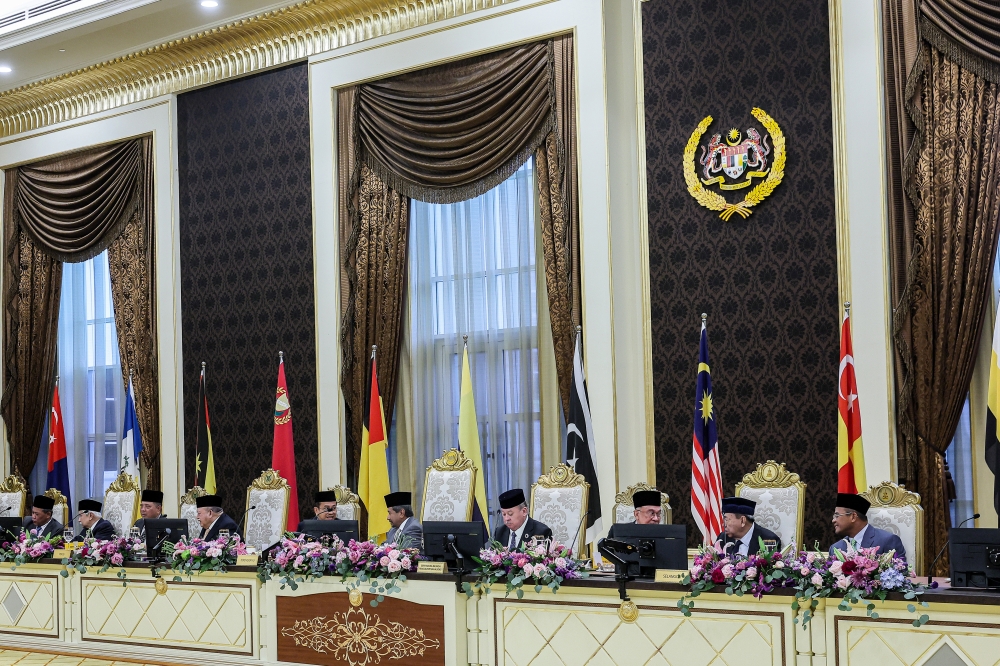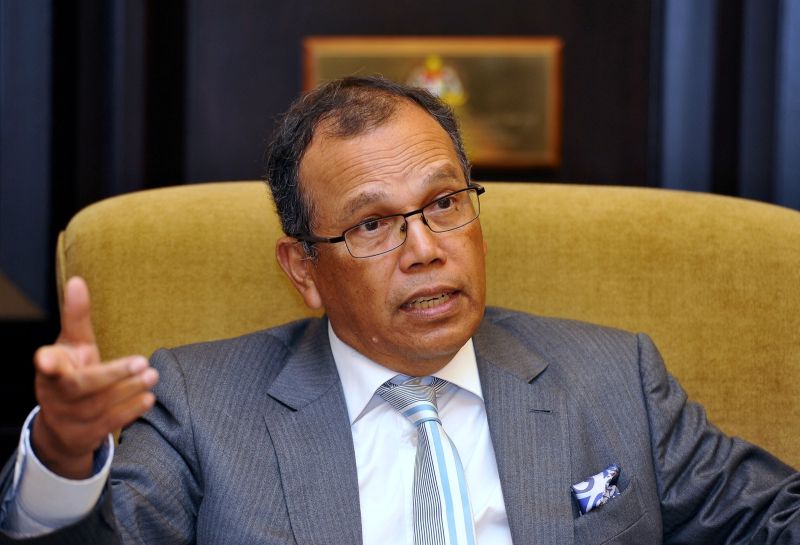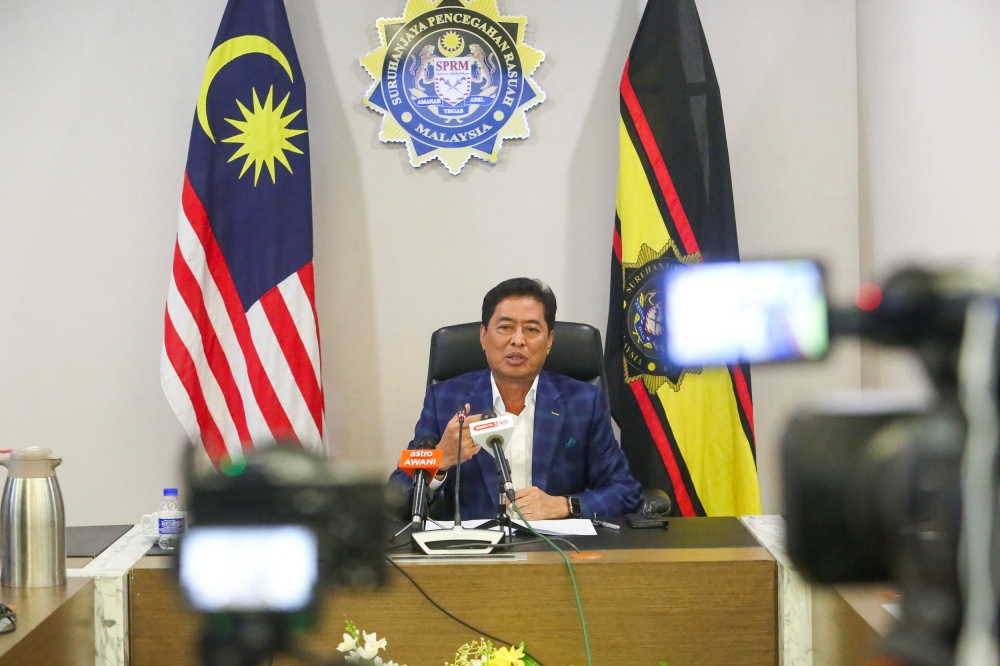KUALA LUMPUR, June 18 — The resignation of Malaysia’s two highest-ranking judges have been all over the news, but how did we get here and what’s next?
Here we list down everything you may want to know about this whole saga — probably one of the most exciting in the legal community in recent times.
1. So what happened?
Tun Md Raus Sharif and Tan Sri Zulkefli Ahmad Makinudin were appointed as Chief Justice of Malaysia (CJ) and President of Court of Appeal (PCA) on April 4, 2017, but announced last Wednesday their resignation which comes into effect on July 31.
2. And what was all the controversy about?
To put it simply, their age, the country’s supreme law (Federal Constitution) and the unusual manner of how their terms in their current positions were extended during the Najib administration.
Under the Federal Constitution’s Article 125(1), a Federal Court judge’s retirement age is fixed at 66, with an extension of six months allowed if the Yang di-Pertuan Agong approves it.
So both Raus and Zulkefli were initially scheduled to end their terms as CJ and PCA on August 3, 2017 and September 27, 2017 respectively — which was when they would have hit the constitutional age limit of 66 years and six months.
But the Prime Minister’s Office under Datuk Seri Najib Razak then had on July 7, 2017 announced the duo’s appointment as additional judges in the Federal Court after they turn 66 years and six months old, extending Raus’ term as CJ for three years until August 4, 2020 and extending Zulkefli’s term as PCA for two years until September 28, 2019.
The controversial and allegedly unconstitutional appointment came under much criticism, with the Malaysian Bar — the professional body for lawyers in peninsular Malaysia — even holding an extraordinary general meeting (EGM) on August 3, 2017 just to discuss the matter and where it was concluded that the duo’s appointments were unconstitutional and invalid.
The Malaysian Bar and the Advocates’ Association of Sarawak both filed constitutional challenges against the duo’s appointments, with their lawyers telling the Federal Court that the unprecedented appointments were a “backdoor attempt to rewrite” the Federal Constitution when the age limit should be increased instead, and that the upholding of such a move would affect the judiciary’s independence.
Tun Dr Mahathir Mohamad had also filed legal challenges to effectively seek the removal of Raus and Zulkefli from their positions, with the Court of Appeal proceedings now put on hold while waiting for the Federal Court to decide the Malaysian Bar and Advocates’ Association of Sarawak’s cases. No date has been fixed yet for the Federal Court’s decision.
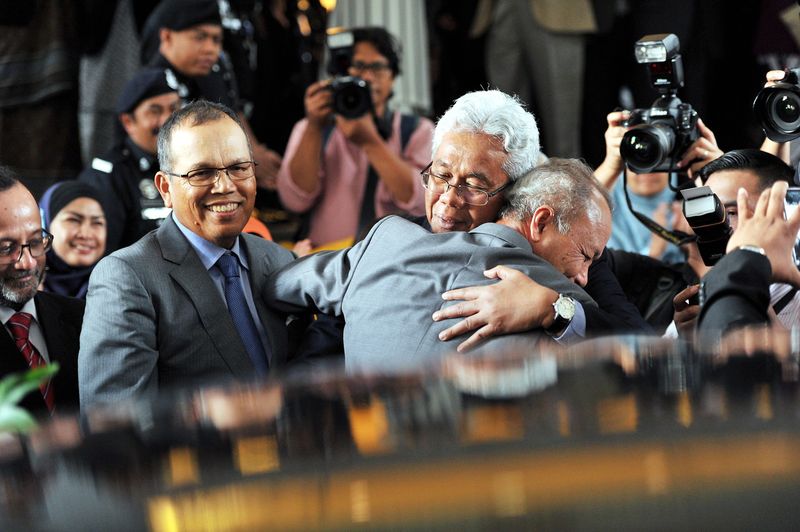
3. Out of curiosity, how much do they earn?
The Judges’ Remuneration Act 1971 states that a Chief Justice earns RM36,000 monthly, while a President of the Court of Appeal earns RM31,500 monthly, not including allowances.
The monthly salary (also not inclusive of allowances) for the two other high-ranking judicial officials — the Chief Judge of the High Court in Malaya and Chief Judge of the High Court in Sabah and Sarawak are RM30,500 and RM30,000 respectively.
Their monthly wages are not too far off from their peers in the Federal Court and Court of Appeal at RM28,500 and RM27,500 respectively, while High Court judges are paid RM26,500 per month, also exclusive of allowances.

4. Who are the favourites to replace them?
Federal Court judge Tan Sri Zainun Ali has held her post since April 4, 2012 and has been praised by former judges for her bold and good judgments in court cases. For both the CJ and PCA positions, Zainun will be the first woman to hold either of these positions if selected.
Sabah-born Tan Sri Richard Malanjum was at age 52 the youngest to be appointed Federal Court judge (June 2005) and has been the Chief Judge of Sabah and Sarawak (CJSS) overseeing High Court judges in east Malaysia since July 26, 2006. There has never been an east Malaysian Chief Justice in the country’s history.
Next in line to Raus and Sharif is Chief Judge of Malaya (CJM), Tan Sri Ahmad Maarop, who has been a Federal Court judge since August 10, 2011. He was appointed to his post that oversees High Court judges in peninsular Malaysia slightly over a year ago on April 4, 2017, taking the place of Zulkefli when the latter was moved up to be PCA.

5. Can they pass the age hurdle?
Zainun reportedly reached the age of 66 on April 4 and was already given a six-month extension to early October this year. If she is moved up to either the CJ or PCA post from August onwards, it will be an extremely short term of around two months.
Malanjum will be 66 years old this October 13, after which he can have his term extended for six months to early April 2019. So if he is appointed to the CJ post from August onwards, it will be a term of up to around nine months.
Ahmad will only turn 66 next May 25 and can be given a six-month extension to late November 2019. So if he is promoted, his term would be at most 16 months or one year and four months.
But former Federal Court judge Datuk Seri Gopal Sri Ram has also said the government could amend the Federal Constitution to increase the constitutional retirement age for judges to 70 with a two-third majority vote in Parliament, saying that Malanjum and Zainun will then “not be prejudiced”.
(The Najib administration had in July 2017 also said it was mulling amending Article 125 to raise the retirement age to 70).
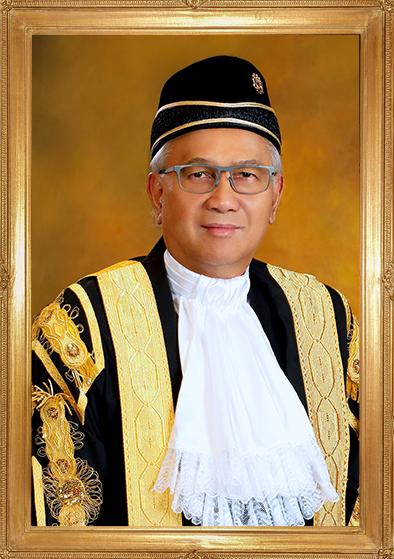
6. Who will select the replacements?
The Judicial Appointments Commission (JAC), which was established on February 2, 2009, is tasked with selecting suitably qualified persons who merit appointment as judges of the superior court (read: Federal Court, Court of Appeal, High Court) for the prime minister’s consideration.
The Judicial Appointments Commission Act’s Section 5(1) states that the commission’s members shall be the CJ, PCA, CJM, CJSS, a Federal Court judge appointed by the prime minister, and four eminent persons also appointed by the prime minister after consulting the country’s three professional bodies for lawyers (Malaysian Bar, Advocates Association of Sarawak and Sabah Law Association that has been upgraded to be the Sabah Law Society) , the country’s Attorney-General, a state Attorney-General.
The nine-member JAC is currently chaired by Raus, and comprises eight others: Zulkefli, Ahmad, Malanjum, Federal Court judge Tan Sri Azahar Mohamed, former Chief Justice Tun Arifin Zakaria, former Court of Appeal judge Datuk K. Anantham, former Sarawak state attorney-general Datuk Abdul Razak Tready, and Universiti Malaya law lecturer Prof Choong Yeow Choy.
Hold on. What if one of the candidates for the CJ and PCA positions are Ahmad or Malanjum themselves, since they sit in the JAC?
No worries. The JAC Act 2009’s Section 25 disqualifies any candidate who is being considered from sitting in or joining the selection meeting, while Section 24(4) states that seven members will be sufficient for the selection meeting to achieve quorum.
7. And what are the qualifications required?
Under the JAC Act 2009’s Section 23, the JAC chooses candidates based on criteria such as integrity, competency and experience; objective, impartial, fair and good moral character; decisiveness, ability to make timely judgments and good legal writing skills; industriousness and ability to manage cases well; and physical and mental health.
The JAC’s website states other “minimal essential qualities” that a candidate must have, including financial responsibility where self-discipline must be shown and which would be important to predict whether a judge can withstand pressures that might compromise his or her independence.
But to be qualified to be selected, a candidate will first have to fulfill the Federal Constitution’s Article 123, namely to be a Malaysian and also having been a lawyer / served in the country’s judicial and legal service / served in a state’s legal service in the 10 years prior to being appointed.
According to former Court of Appeal judge Datuk Seri Mohd Hishamudin Yunus, other related provisions are Article 122B(1) and Article 122B(2).
Article 122B(1) provides for the appointment of the top four judicial positions and judges by the Yang di-Pertuan Agong acting upon the advice of the prime minister and after consultation with the Conference of Rulers, while Article 122B(2) requires the prime minister to consult the chief justice before advising on the appointment of judges (other than the chief justice).
8. Who else can be candidates?
Datuk Seri Mohd Hishamudin Yunus confirmed to Malay Mail that candidates for CJ and PCA are not restricted to Federal Court judges and can also come from Court of Appeal judges, saying: “Being a Federal Court judge is not a prerequisite”.
Besides Federal Court and Court of Appeal judges, it can also be anyone else as long as they fit the requirements under Article 123 and other provisions, Hishamudin confirmed.
Apart from the top four high-ranking judges (Raus, Zulkefli, Ahmad, Malanjum), there are currently 12 other Federal Court judges, including Tan Sri Jeffrey Tan Kok Wha who was brought back from retirement to serve as an additional judge to the Federal Court for two years from July 1, 2016 until the end of this month.
There are currently 25 Court of Appeal judges and 58 High Court judges as of May 2.
But Hishamudin also told Malay Mail that the appointments of additional judges in the Federal Court have nothing to do with the appointments of the four highest-ranking position, saying: “A person holding the post of Additional Federal Court judge cannot at the same time hold the post of CJ or PCA or CJM or CJSS.”
9. How does this work?
After the Commission decides on the candidate, it will then submit a report to the prime minister on its recommendation and also state the reasons for its selection, as well as provide any other additional information.
After receiving the report, the prime minister can request the commission to recommend two more names for him to consider.
Hishamudin confirmed to Malay Mail that the prime minister can keep asking for more names due to a constitutional provision, saying: “Ultimately the PM chooses the candidate. He can request as many times he wants. Article 122B overrides the JAC Act.”
And after accepting any of the recommended candidates, the prime minister then advises the Yang di-Pertuan Agong for their appointments to the positions.
The newly-formed Institutional Reforms Committee (IRC) under the federal government is planning to recommend changes to the JAC’s composition and judge selection process, pointing out that the submission of names to the prime minister allows for the executive to approve or reject recommended candidates.






